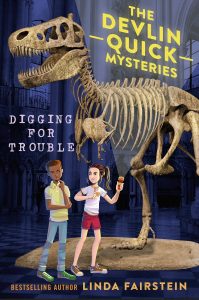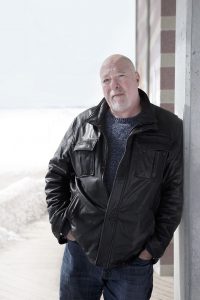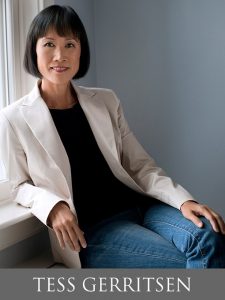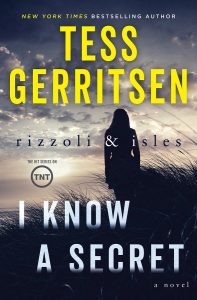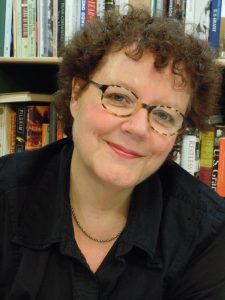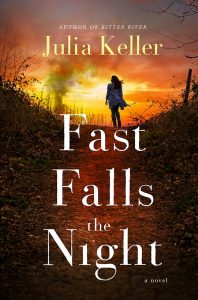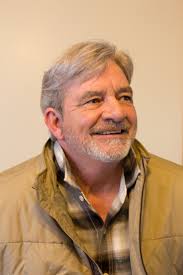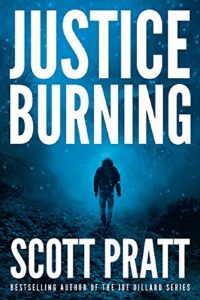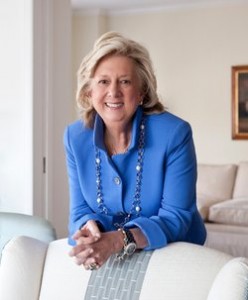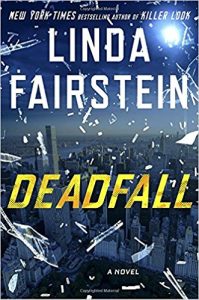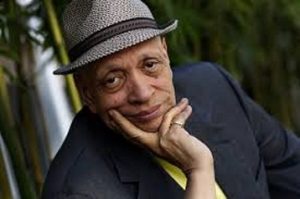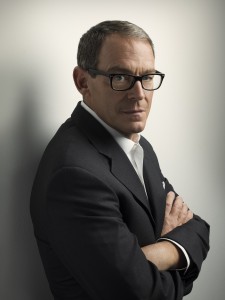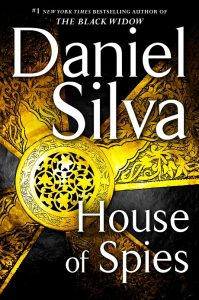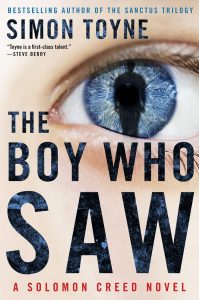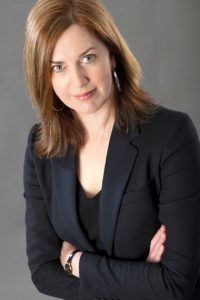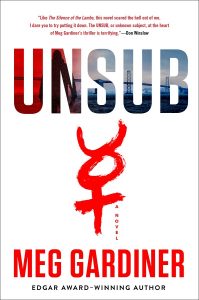Linda Fairstein, internationally bestselling author of the Alexandra Cooper novels and former Manhattan assistant district attorney for more than two decades, has combined her considerable talent, knowledge, and imagination to begin writing a series for kids between ages 8 and 12. Into the Lion’s Den, the first novel in the series, introduced us to Devlin Quick, an enterprising young sleuth.
In the second book, Digging for Trouble, Devlin and her best friend Katie are in the badlands of Montana with a team of paleontologists, digging up dinosaur bones. Devlin suspects something is wrong when the fossils Katie found are switched for fakes. The mystery takes Dev and Katie back to Manhattan—to the Museum of Natural History—where the case deepens and becomes more complicated.
I understand you were a voracious reader of the Nancy Drew books and penned your first caper for kids at the age of eleven. Tell us about that.
I discovered the Nancy Drew books because I have an older brother. I found a book about the Hardy Boys and realized he was reading a series. Someone told me there was a series of books about a girl who was a sleuth, so the Hardy boys led me to Nancy Drew. I discovered I loved reading about recurring characters to whom I became attached, which influenced my reading and ultimately, my writing.
I was involved in a creative writing club in the fifth and sixth grades. I loved writing stories. My elementary school librarian was a fabulous person who kept putting books in my hands.
Ten years ago, my mother died. She had hoarded a few things, among which was a story I had written and self-illustrated when I was eleven or twelve. It was called The Secret of Apple Tree Farm. It was about a girl sleuth solving a mystery. My publisher wanted to see it, and put it in a power point presentation for my talks at various schools. It’s the physical proof that I started writing mysteries at that age. The manuscript is a wonderful connection to my mother, and her having saved it was a great surprise to me.
I get the sense that partly because of Devlin’s friend Booker, the Devlin Quick series will appeal to boys as well as girls. Do you think that’s true?
Yes. Booker is in the books for two reasons. I wanted to reach both boys and girls. In my day, boys grew up reading the Hardy boys books. I put Booker in for that reason—to appeal to boys. And, if you go back to those early series of books written for kids, there was a lack of diversity and they were filled with stereotypes. The bad characters were described as ‘swarthy’ and were always ‘others.’ So, in the Devlin Quick books, Booker is an African-American boy. In the first book, Into the Lion’s Den, one student is from Argentina; and in this book, a Chinese student is also involved.
I know you spend time in Montana and have said you always hoped to dig up some dinosaur bones when you’re hiking there. Will you tell us a bit more?
You know, I had a great, long first marriage. My husband was much older than I, and he died in 2011. In 2014, I began dating and married my best friend of forty-five years, a man with whom I went to law school. He has a Montana ranch. I’d never been to Big Sky country which is magnificent. I’ve given Devlin my fear of rattlesnakes, but like her, I was also fascinated to learn about a vast inland seaway that covered a portion of Montana for eons. As a result of that geological feature, an area of Montana has the richest deposit of dinosaur fossils in the U.S.
Many of the digs are on government land—meaning the government gets to keep the fossils found there, but there are also some found on private land. Our ranch abuts a national forest, and it’s a great place to dig. I’ve applied to participate in a dig next July. When we’re at Martha’s Vineyard, I’m always looking for arrowheads. In Montana, I keep thinking I’ll turn up a triceratops.
So, one of these days, you too, will be ‘digging for trouble.’ [Laughter]
Yes, you could say that!
Devlin Quick is a smart, spunky, and edgy kid with lots of curiosity. Is she modeled on anyone you know?
I drew back to myself and my closest friends in creating Devlin and for capturing a kid’s curiosity at that age. My inspiration was Nancy Drew. I grew up in Mount Vernon, New York, a suburb near New York City. It was a safe place, in contrast to Nancy Drew’s hometown. Devlin’s curiosity is certainly mine, along with her desire to help people find justice, which I think gave rise to my career in the law.
Devlin’s independence was inspired by Nancy Drew. Many of these books for pre-adolescents involve one-parent households. Devlin’s father died and she never knew him, which explains her desire to solve mysteries. Having only a working mother means she has less supervision and can be out and about, trying to solve mysteries. That was a conscious decision I made which was different from my experience as a kid. I grew up in an intact, two-parent home with my grandparents there. Her boldness and curiosity are traits I learned from other fictional characters, and are traits I eventually learned for myself as a prosecutor.
As in the Alex Cooper series, each Devlin Quick book features a New York City landmark. In “Digging for Trouble,” it’s the Museum of Natural History. Tell us a bit about the museum.
I have strong memories of the Museum of Natural History as being the first cultural institution my parents brought me to visit. As an adult, it’s the first place I take out-of-towners to experience. It’s always been one of my favorite places to both learn and have fun. The president of the museum, Ellen Futter, is a friend of mine, and she’s done extraordinary work bringing the museum into the twenty-first century, including ensuring the high quality of the research done there. The head of the dinosaur division, Michael Novocek, had his staff take me through the exhibits, so I learned a great deal about dinosaurs. The museum is one of the magical places in New York City.
You must stay immersed in the world of twelve-year olds to write the Devlin Quick series with such authenticity. Tell us about that.
I do it with the help of family and friends. There are many kids in my family: nieces, nephews, great-nieces and nephews, and there are also the children of friends. When I’m around kids, I listen and learn new words, and as a result, I’ve been able to capture the voices of today’s twelve-year olds. As I do with adults, I listen to how kids talk and that forms the basis of the dialogue.
What’s coming next from Linda Fairstein?
The next Devlin Quick book takes place on Martha’s Vineyard and is called Secrets from the Deep. The twentieth Alex Cooper novel is in the works, and the working title is Bridge of Sighs.
Congratulations on writing “Digging for Trouble,” a furiously fast-paced story about a super-smart, curious twelve-year-old sleuth who’s a master at uncovering secrets and solving crimes. It’s a book boys and girls between ages eight and twelve will love.

